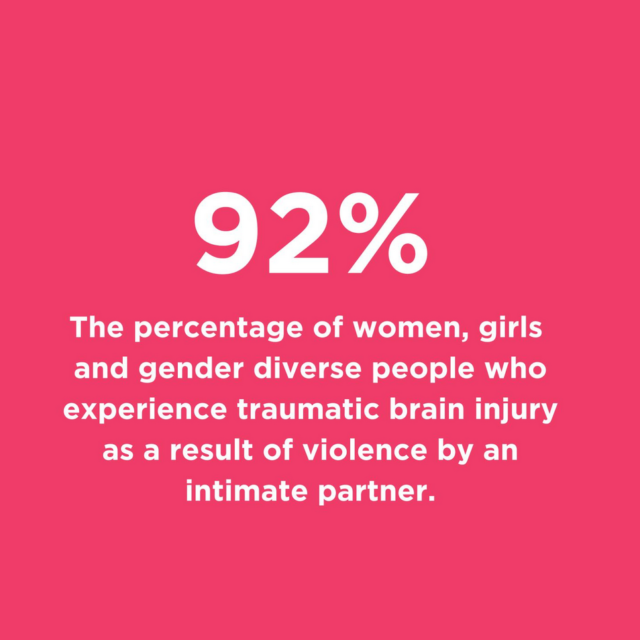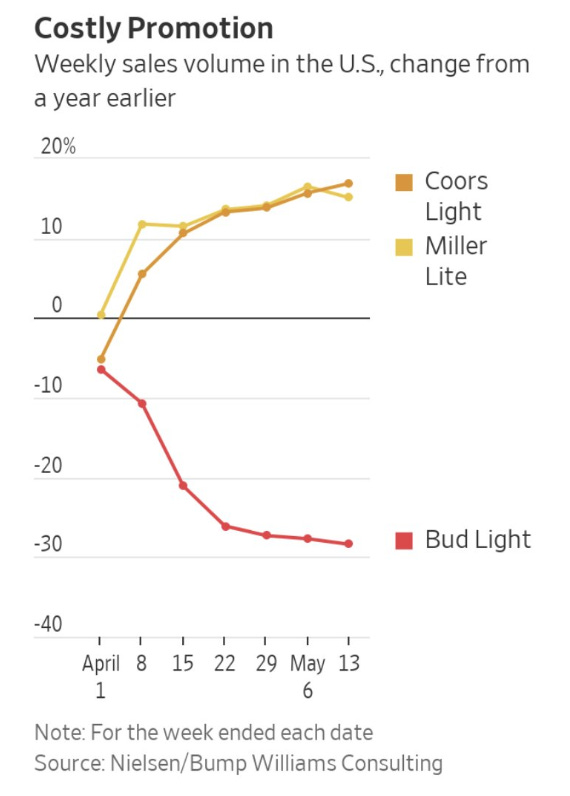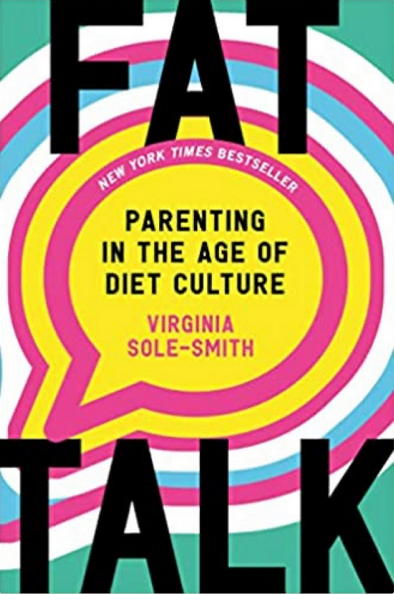marvincandle815
Published 17 Apr 2011From the Classic Albums: 2112 & Moving Pictures special. Made some minor cuts to avoid repetition and to keep it under 10 minutes.
June 9, 2023
Rush – The Making of “YYZ”
June 5, 2023
Claim: 92% of Canadian women will suffer traumatic brain injury from an intimate partner
Did that headline grab your attention? Certainly the graphic from which it was drawn grabbed my attention. But, as Janice Fiamengo explains, it’s a vast exaggeration in pursuit of a political goal:
Linden called on men and boys to educate themselves on violence and to call out one another for perpetrating or dismissing abusive behavior of any kind.
It’s not hard to understand why National Hockey League personality Trevor Linden, former captain of the Vancouver Canucks, has lent his star power to a YWCA campaign about women’s injuries from domestic violence. Hockey players have long been targets of feminist accusation for their association with a sport that allegedly promotes misogyny, racism, and violence against women. Even a beloved icon of the sport must continually strive to prove how much he despises his fellow men.
In this case, the campaign of vilification targets the purported frequency with which female victims of intimate partner violence (IPV) experience traumatic brain injury, and demands “increased support for diagnosis and treatment”. To do so, the campaign asserts some of the most dramatic numbers I’ve ever seen.
No stranger to concussions, Linden is said in a CBC report to have been “stunned” to learn that female victims are injured at a much higher rate than professional hockey players. “For every concussion incurred by an NHL player,” the report states, “approximately 7,000 women and girls in Canada are concussed because of intimate partner and domestic violence, according to a new estimate from YWCA Metro Vancouver and researchers at the University of British Columbia.”
Linden’s shock is understandable. We’ve all seen the hits meted out to professional hockey players. The thought of thousands upon thousands of Canadian women every year being treated in like manner — and suffering the consequences in traumatic brain injury (TBI) — is disturbing even to those of us who have learned to be skeptical of feminist research and inflammatory reports by Canada’s state-funded news agency.
The key paragraph in the story that justifies the staggering numbers tells us that
Approximately four in 10 women and girls in Canada will face violence from a current or former partner, according to a 2021 report by Statistics Canada, or about 290,000 every year. As many as 92 per cent of them will suffer a traumatic brain injury due to blows to their head or strangulation.
That sounds as if more than 3 in 10 women and girls in Canada (92% of 4 in 10) will at some point in their lives suffer brain injury from battering.
The statement might just qualify as the most outstanding exaggeration of violence against women ever made by a feminist organization. The good news for women and girls in Canada — and the bad news for the ever-declining credibility of feminist advocates and reporters — is that the numbers being promoted are flat-out false. They’re false even if we take note of the operative word “approximately” in the above statement. They’re false even if we accept the extraordinarily elastic definition of violence employed by the feminists who work for Statistics Canada. And they’re false even if we accept that a small study of black female victims of extreme violence can be generalized to all girls and women in Canada.
The numbers are false, ultimately, because the literature review from which the 92% number was extracted does not actually claim that 92 per cent of all IPV victims experience brain injury. A fundamental misreading and misrepresentation of data is at the heart of the campaign’s extraordinary claim.
Let’s trace, as much as possible, how the numbers have been manipulated and fudged. At the center of the hoopla is a report from Statistics Canada (“Intimate partner violence in Canada, 2018: An overview”) based on a large survey conducted by online questionnaire and telephone interview. This government-funded survey sought to measure the experience and frequency of intimate-partner violence as reported by victims — both men and women — over the previous year and over the lifetime of each victim. The sample size was large (43,296) but the response rate was low, at 43.1% overall in the Canadian provinces. (It is worth noting that response rates lower than 60% are considered by some researchers to produce unreliable and invalid results.)
The Longest Day: 75 Things You Don’t Need to Know
A Million Movies
Published 6 Jun 2019In honor of the 75th anniversary of the D-Day invasion, I’m taking a look at my favorite D-Day movie … The Longest Day.
Also, unlike most of my other videos, there are some things in here I think you do need to know. Number one on that list is to hear some of the true stories of the men and women featured in this movie. They, along with hundreds of thousands of other heroes and heroines, saved the world.
Fair warning: My pronunciation of anything French is going to be amazingly bad. No disrespect intended.
June 4, 2023
“[T]he unspoken truth about the English and protesting. Reader, we are crap at it.”
William Atkinson has lost patience with the posh idiots who make up the useful idiot brigade of Just Stop Oil and other Extinction Rebellion spawn:

“Just Stop Oil Courtauld Gallery 30062022” by Just Stop Oil is licensed under CC BY-SA 4.0 .
I’m sorry, readers, but Just Stop Oil have gone too far this time.
I’ve previously been pretty sanguine about the eco-loonies. I don’t drive a car, a decent number of my friends are w*ke, and as I am trying to market myself as Britain’s first pro-climate change commentator – all that sparkling wine! – anything that raises the issue’s salience is a bonus. Coppers standing limply by glue-enthusiasts is fine by me.
That was until this morning. But the decision of these pound-shop Rainbow Warriors to hold up the England team on their way to Lord’s is indefensible. If Just Stop Oil really claim to care about the future of the planet, they should surely want to protect the most beautiful thing on it: the glorious, sainted game of Test cricket? Arrest them all, throw away the key, and apologise profusely to Ben Stokes.
What is even more surprising about this act of sporting vandalism is that one would usually expect cricket to be something of which Just Stop Oil and other protestors are quite fond. They are, after all, rather conservative. That is not just in a historic sense – nobody was more reactionary than the Luddites! – but because they are made up of exactly the sorts of people one would expect to vote Tory.
A University of Exeter study showed that supporters of Extinction Rebellion in 2019 were overwhelmingly middle-class, highly-educated women from the South of England. Some 85% had degrees, two-thirds identified as middle-class, a high proportion were self-employed, and three-quarters lived in southern England – a third from the West Country. Surely the Blue Wall personified?
Why have Deborah from Totnes and Agnes from Frome decided to start gluing themselves to motorways and mistaking Heinz for Dulux? Professor Clare Saunders, whose analysis I just quoted, said that because these people are “not natural protestors” or “natural law-breakers”, it must show they were “already persuaded by the rightness of the climate cause”. Unsurprisingly, I disagree.
Our over-proliferation of graduates in recent decades, combined with the increasing tendency of women to vote for left-wing parties, was naturally going to produce some form of radicalisation. But add in Brexit, the possibility of blocking some houses, and the opportunity to reclaim some form of lost youth, and suddenly giving it the gilet jaune seems like a nice day out.
In that lies the unspoken truth about the English and protesting. Reader, we are crap at it. The French shut down Paris, lose lives, and burn down municipal buildings in protest at a raise in the pension age, all we can manage are posh girls mucking around with soup, blue-haired Oxford undergrads sticking themselves to a floor, or railwayman who now openly admit a year of strikes has been pointless.
H/T to Johnathan Pearce for the link.
The peasant consumers are threatening to storm the ESG castle
Jon Militmore on the threat to the corporate world of ESG-guided action posed by mere “consumers” with their “choices”:
The Wall Street Journal ran a deep dive article last month exploring “how Bud Light blew it”, but it somehow missed the most important part of the story.
As most people already know, the world’s most popular light lager has seen a collapse in sales following a boycott prompted by a March Madness ad campaign featuring transgender influencer Dylan Mulvaney. The Journal‘s chart depicting the fall in Bud Light sales speaks for itself, and the company’s delayed and tepid response to the uproar only seemed to make matters worse.
This isn’t Anheuser-Busch’s first foray into controversial social issues.
The Journal‘s Jennifer Maloney points out that the company has been engaging in social equity-themed advertising for years, including a 2021 Michelob Ultra ad featuring transgender track star Cecé Telfer and a 2022 Bud Light Canada campaign for Pride Month displaying various pronouns.
What Maloney fails to mention in her article is why beer companies — not just Bud Light — are suddenly courting controversial social issues such as nonbinary gender, transgenderism, and third-wave feminism.
The answer is simple: The rise of environmental, social, and corporate governance as the dominant strain of “stakeholder capitalism” has incentivized corporations to curry favor with ESG rating firms, even if it means alienating their consumers.
Unlike traditional capitalism, which seeks to maximize profits by serving consumers, the ESG model seeks to “improve” capitalism by considering other stakeholders besides investors and consumers. Publicly traded corporations are graded on how well they achieve socially desirable metrics, such as combating climate change, advancing diversity and inclusion, and creating a more “equitable” society.
What was intended to be a kinder, gentler form of capitalism has morphed into a kind of economic fascism that places the arbitrary interests of a small cabal of people — asset managers, bureaucrats, global financiers — ahead of consumers.
As the Austrian economist Ludwig von Mises pointed out, consumers are the true bosses in a capitalist system. They ultimately decide what products are created and purchased, who becomes wealthy, and who becomes poor.
As the Bud Light fiasco shows, ESG places consumers in the back seat. The social equity campaigns are not designed to appeal to Bud Light consumers, but to the ESG rating agencies, which have the power to downgrade companies that fail to dance to their tune.
June 3, 2023
What are you going to believe? The official Narrative™ or your lyin’ eyes?
Jeff Goldstein rounds up just a few incidents that gained media notoriety for their racist overtones, only to be quietly dropped and ignored once the truth came out:

A screenshot from a video showing Nick Sandmann confronted by activist Nathan Phillips at the steps of the Lincoln Memorial in Washington DC, 18 January, 2019.
Wikimedia Commons.
Covington Catholic High School’s Nick Sandmann never tried to stare down a phony Native American activist. Smugly or otherwise. And we all should have known it.
Morgan Bettinger never threatened to run over BLM protesters, nor did she make any of the supposedly racist remarks Zyahna Bryant claimed she did. Bryant — a “social justice” activist and Marxian race hustler — can perhaps be trusted to review a new Applebee’s dessert pie, but on all other subjects, the wise move would be to adopt a skeptical pose when engaging with her, if not simply dismiss out of hand anything spilling from her mouth save maybe a tasty fruit filling.
Michael Brown never said “hands up, don’t shoot!” Jacob Blake is not a hero or a civil rights icon — nor should be George Floyd or Trayvon Martin.
Christian Cooper did indeed threaten to take Amy Cooper’s dog. Justin Neely was a crazed homeless man and career criminal who absolutely threatened people on a subway train. Daniel Penny has never been a white supremacist.
Time and time again, the left creates its own mythology, then repeats it until the rest of us just kind of accept it as at least somewhat fairly described. And that’s a fatal mistake, both intellectually and practically.
Physician’s assistant Sarah Comrie, six-months pregnant and coming off of a twelve hour shift in Bellevue Hospital’s neonatal ward, never approached a group of five black teenagers, all of them males, and tried to steal a bike they’d rented — though the mental image of five black teenagers pressed ridiculously together groin to ass on a rented bike peddling down a New York City street on their way to, what? — church? A Hamilton matinée? — I have to admit amuses me enormously.
Similarly, the five male teens who laid claim to the bike never acted “admirably,” as yet another race hustler attempted to frame the interaction; in fact, during the 90-second viral video clip, the men can be seen and heard hectoring the pregnant woman, taunting her, cursing at her, putting hands on her several times, and intentionally creating a “Karen” narrative in real time. Nevertheless, we’re told that if we believe our own eyes — and identify thuggish behavior as belonging to those who act thuggishly, and with what it appears is thuggish relish — then what we’re doing is “using thug as a synonym for the n-word”.
— And yet, the person making that claim is naturally the one who is interested in drawing that connection — in a rhetorical maneuver that has become so trite and boring that I wish I could stop pointing it out: the gambit is meant to forestall any pushback on the preferred and implied racial narrative the grifters are hoping to shape and add to their civic mythologies, while also and simultaneously deterring people from honestly assessing what they’ve witnessed — however out of context and fraught that may be — for fear of being labeled “racist” and publicly scapegoated as a symbol for venal “whiteness” that is now central to the leftist’s “anti-racism” and CRT projects.
June 2, 2023
A potential sign of resistance?
Severian on the odd phenomena of people who’ve begun to discover they didn’t need to accept the ever-more-woke products of the entertainment industry and, more recently, major retailers and brewers:
The Third Law of SJW — “SJWs always double down” — is really going to get tested with these things [woke reboots/remakes of popular TV shows, movies, etc.], but we need to hope they keep the faith. We want them to double, triple, quadruple down. The material basis of Clown World is the assumption that people simply can’t live without iCrap. As I noted, lots of people did indeed seem to enjoy the Covid lockdowns, and they weren’t all aspiring Laptop Class leftoids, either. Lots of moms found out that they rather enjoyed spending time with their kids, rather than putting in an extra twenty hours a week down at the law firm. Lots of suburban dads found a new sense of accomplishment doing little projects around the house.
In other words, people found out that not only could they just “make do”, they actually kinda enjoyed “making do”. Lots of them went right back to their old ways the minute they could, of course, but not all of them … and now, #Woke Capital is basically doing the job for us. They’re daring us to not go to the movies, the same way Fox News is daring us to cut the cord entirely (they figure that hey, we get $x a month from the cable subscription fee regardless of whether anyone watches or not, so why not give in to our natural inclinations and become MSNBC Lite?).
They’re daring us to cut the cord, throw the Pocket Moloch in the nearest lake, and get what we need from local sources — including entertainment. And who knows what might happen if we start actually talking to our neighbors? If, as with the lockdowns, the guy who lives down the street ceases to be “the dude with the green Honda” and becomes Bob, a real person?
Challenge accepted, motherfuckers.
June 1, 2023
Banning Roger Waters would be playing his game
In Spiked, Daniel Ben-Ami explains why we should reject the arguments about banning Roger Waters, formerly the frontman for Pink Floyd, and lately a pretty out-there antisemite:
Pressure is mounting to ban Roger Waters from performing in Britain. The former Pink Floyd frontman and veteran anti-Israel activist stands accused of anti-Semitism. But whatever one makes of Waters’s antics, his performances should not be cancelled.
Waters is set to perform his first UK show tonight in Birmingham, with further concerts scheduled for Glasgow, London and Manchester. These are part of his controversial “This Is Not a Drill” tour, which began its European leg a few months ago. The show contains a number of controversial elements, such as Waters dressing up in a Nazi-style uniform and brandishing a gun, while Anne Frank’s name is projected above the stage. In past tours, he has floated an inflatable pig with a Star of David on it above the stage.
The Waters row came to a head earlier this month, when local authorities in Frankfurt attempted to ban his concert. The ban was successfully challenged by Waters in court and the concert went ahead, despite protests. Waters is now being investigated by the German police for wearing a Nazi-style uniform on stage at his Berlin gig (the display of Nazi symbols is illegal in Germany, except for educational or artistic purposes). According to Waters, he donned the uniform not to endorse Nazism, but in order to make a “scathing critique” of it.
Jewish community organisations in the UK have condemned Waters, with some calling for him to be censored. The Board of Deputies of British Jews has argued that his concerts are probably better described as political rallies. The National Jewish Assembly has called on the UK government to condemn Waters. The Campaign Against Antisemitism, a volunteer-led charity, has not only launched a petition to stop venues hosting him – it has also written to cinema chains demanding they cancel film screenings of his concerts.
[…]
There are also more practical reasons to challenge these attempts to cancel Waters. The campaign against him, first in Germany and now in Britain, has allowed Waters to present himself as a free-speech martyr. To some, this will lend credence to his dubious claim that he is the victim of shadowy, covert forces determined to silence his advocacy for the oppressed.
Besides, banning displays of anti-Semitism does not make the problem go away. On the contrary, it only encourages anti-Semitism to take on more disguised forms. This often includes the demonisation of Israel or of Zionism, rather than Jews as such. Even those who do genuinely hate Jews will rarely admit to it openly. Instead, they typically use coded language, which is harder to challenge and confront.
By all means, protest outside Waters’s concerts and challenge his outrageous antics. But the attempts to ban his concerts are an affront to freedom. And they will do nothing to help the struggle against anti-Semitism. Roger Waters must have the right to perform.
May 31, 2023
The War Against The Patriarchy, updated
Janice Fiamengo responds to a recent Joel Kotkin op-ed in the National Post discussing the “war of the sexes” and the long, long string of victories chalked up by the “weaker sex”:
The war between the sexes has ended, and rather than a co-operative future that could benefit all, it has turned out to be more like a lopsided win for the female side.
So begins Joel Kotkin’s National Post op/ed “Women have won the ‘war between the sexes’, but at what cost?” It is a welcome but disappointing analysis that starts with a show of defiance and ends in quiet desperation. Of course, it’s good to find anyone in a major newspaper willing to cast a less-than-adulatory eye on “The Future [that] is Female” or to write sympathetically about men, and Kotkin, a prolific author on cities and technocracy, proves his good faith on the strength of that opening statement alone. Aside from the wishful thinking of believing feminism to be winding down (was #MeToo a prelude to ceasefire?) or ever having envisioned a co-operative future (he should take a look at Kate Millett’s incendiary “Theory of Sexual Politics“), Kotkin is to be commended for daring to name as a war the decades of post-1960s activism, in which all the decisive victories have been claimed by feminists against men.
Kotkin, however, isn’t able to continue in the take-no-prisoners style he chose for his opening salvo. He is prevented, either by his own prudence, his lack of deep knowledge, or the paper’s editorial insistence, from targeting feminist ideology and policies in the rest of the article. In fact, the article doesn’t name a single piece of debilitating feminist legislation or even make one reference to the many expressions of anti-male contempt that are now deeply embedded in our public culture. The result is a curiously disembodied discussion in which serious social problems linked to male decline are pointed to without any attempt made to say exactly how they came about or how they might be reversed.
“The crux of the problem,” Kotkin tells us to start off, “lies in the fact that as women rise, men seem to be falling.” Here we see him start to draw back from the attack, as if afraid to say what he really thinks. His phrasing makes male decline sound like a natural phenomenon, an illustration of the primordial principle of Yin and Yang. Or perhaps it is simply that men, with their allegedly fragile egos and hegemonic masculinity, haven’t been able to compete against all that female ability, once dammed up by the patriarchy, now finally being let loose on the world (though always with calls for more to be done to assist women).
[…]
Kotkin refers to men “left behind” in the economy, but he keeps mum about the decades of affirmative action in higher education and hiring (detailed by Paul Nathanson and Katherine Young in Legalizing Misandry, pp. 81-124) as well as draconian sexual harassment legislation that have made work life unrewarding and often punitive for men.
He stresses the loss of sexual amity and of willingness to marry, but avoids discussing the nightmare of family law that has made marriage or even cohabitation perilous for many men.
The sins of omission do not end there. Perhaps working on the assumption — not without basis — that any discussion of social problems will need to focus on women at least as much as on men, Kotkin proceeds to backtrack on his earlier claim about women’s victory in the sex war, outlining instead a downbeat portrait of women’s troubles. Citing research by Jonathan Haidt, he tells us that adolescent girls have been severely affected by depression and self-harm, that many young women, without reliable men to support them, have had to fend for themselves in a difficult economic climate, and that single mothers, left with few options, are unable to offer stability to their children. It looks as if the decline of men mentioned early in the article has mainly hurt women and their children.
What Kotkin neglects to mention — surely deliberately — is that adolescent boys commit suicide at 4 X the rate of girls, resolving their depression decisively enough that Haidt seems not to have felt the need to account for them; that women are the ones who choose divorce in approximately 70% of cases; and that divorced fathers are too often denied a real role in their children’s lives while being burdened past endurance by exorbitant support payments. In other words, for every sad woman held up for our concern, there is a plurality of equally sad men rendered invisible in the conventional reporting. The staggering statistics on male suicide provide a stark illustration of Kotkin’s initial contention about the casualties of the sex war — yet he leaves these aside, choosing instead to voice the now-obligatory concern about the trans threat to women’s sports.
Perhaps most importantly, Kotkin suggests through his word choice that the data he cites are simply “trends”, occurrences that came about through economic and demographic factors independent of the sex war initially evoked. But they aren’t. They flow directly from a feminist vision in which the family — explicitly understood by feminist leaders to be a source of abuse and oppression — must be transformed and women liberated from reliance on the fathers of their children. Under this vision, a more just and equitable world will be ushered in by women’s superior leadership once they are freed from their unpaid labor in the home and the many sexist barriers that hold them back. That freedom must be aided, according to conventional wisdom, through abundant contraception, unfettered abortion, collectivized child care, no-fault divorce, programs and propaganda to urge men to do more housework, and non-stop encouragement to women — in movies, sit-coms, advertising, articles, and government equity programs — to give up on their men.
Alvin Toffler may have been utterly wrong in Future Shock, but I suspect his huge royalty cheques helped soften the pain
Ted Gioia on the huge bestseller by Alvin Toffler that got its predictions backwards:
Back in 1970, Alvin Toffler predicted the future. It was a disturbing forecast, and everybody paid attention.
People saw his book Future Shock everywhere. I was just a freshman in high school, but even I bought a copy (the purple version). And clearly I wasn’t alone — Clark Drugstore in my hometown had them piled high in the front of the store.
The book sold at least six million copies and maybe a lot more (Toffler’s website claims 15 million). It was reviewed, translated, and discussed endlessly. Future Shock turned Toffler — previously a freelance writer with an English degree from NYU — into a tech guru applauded by a devoted global audience.
Toffler showed up on the couch next to Johnny Carson on The Tonight Show. Other talk show hosts (Dick Cavett, Mike Douglas, etc.) invited him to their couches too. CBS featured Toffler alongside Arthur C. Clarke and Buckminster Fuller as trusted guides to the future. Playboy magazine gave him a thousand dollar award just for being so smart.
Toffler parlayed this pop culture stardom into a wide range of follow-up projects and businesses, from consulting to professorships. When he died in 2016, at age 87, obituaries praised Alvin Toffler as “the most influential futurist of the 20th century”.
But did he deserve this notoriety and praise?
Future Shock is a 500 page book, but the premise is simple: Things are changing too damn fast.
Toffler opens an early chapter by telling the story of Ricky Gallant, a youngster in Eastern Canada who died of old age at just eleven. He was only a kid, but already suffered from “senility, hardened arteries, baldness, slack, and wrinkled skin. In effect, Ricky was an old man when he died.”
Toffler didn’t actually say that this was going to happen to all of us. But I’m sure more than a few readers of Future Shock ran to the mirror, trying to assess the tech-driven damage in their own faces.
“The future invades our lives”, he claims on page one. Our bodies and minds can’t cope with this. Future shock is a “real sickness”, he insists. “It is the disease of change.”
As if to prove this, Toffler’s publisher released the paperback edition of Future Shock with six different covers — each one a different color. The concept was brilliant. Not only did Future Shock say that things were constantly changing, but every time you saw somebody reading it, the book itself had changed.
Of course, if you really believed Future Shock was a disease, why would you aggravate it with a stunt like this? But nobody asked questions like that. Maybe they were too busy looking in the mirror for “baldness, slack, and wrinkled skin”.
Toffler worried about all kinds of change, but technological change was the main focus of his musings. When the New York Times reviewed his book, it announced in the opening sentence that “Technology is both hero and villain of Future Shock“.
During his brief stint at Fortune magazine, Toffler often wrote about tech, and warned about “information overload”. The implication was that human beings are a kind of data storage medium — and they’re running out of disk space.
May 29, 2023
“I’m starting to think that Just Stop Oil is a Big Oil plant”
Tom Slater on the amazing tone-deafness of the Just Stop Oil “activists”:

“Just Stop Oil Courtauld Gallery 30062022” by Just Stop Oil is licensed under CC BY-SA 4.0 .
I’m starting to think that Just Stop Oil is a Big Oil plant. What else could explain these campaigners’ phenomenal ability to turn the public against them and confirm their critics’ worst prejudices. Namely, that this environmental activism / amdram troupe is stuffed with upper-middle-class irritants who couldn’t give a damn about working-class people. Surely, this has got to be on purpose?
Take their recent “slow marches” through London, aimed at bringing traffic to a standstill. The whole point of these stunts seems to be to force cab drivers, delivery men and builders to sit in traffic so that these protesters can preach their miserable little gospel. And as Edred Whittingham‘s (don’t laugh) deranged antics at the Crucible recently showed us, you now can’t even escape these bourgeois millenarians during your leisure time.
That this new generation of environmentalists are almost uniformly posh is an established empirical fact. An academic survey of those involved in Extinction Rebellion – the mothership organisation from which Just Stop Oil and Insulate Britain were spawned – found, to the surprise of precisely no one, that they were overwhelmingly middle class, highly educated and from the south. A full 85 per cent of them have some form of university degree.
So what we have here is the comfortably off classes – those with sufficient free time to glue themselves to roads on a Wednesday mid-morning – forcing their weird hangups on everyone else. Time and again, when they are criticised for making people’s lives a misery, they offer only patronising lectures. “We’re so sorry that we have to disrupt the lives of ordinary people”, said Just Stop Oil’s Eben Lazarus (I know) to Vice last year, but “hopefully people will see, further down the line, that the disruption we’re causing is microscopic compared to the disruption that we’re going to face because of the climate crisis”. Translation: we know better, you cretins.
No wonder that so many now respond to these cunning stunts with instant, visceral fury. First there was the Battle of Canning Town in 2019, when east-London commuters pulled two Extinction Rebellion people down from the top of a Tube train. And as police have failed to deal with these protests – they now seem to escort rather than stop these “slow marches” – motorists have increasingly decided to take matters into their own hands. Several clips of workers clashing – sometimes physically – with Just Stop Oil activists have gone viral in the past week alone, including one of a man shoving JSOers on Blackfriars Bridge, before promptly being arrested.
The high-water mark of the Vegan cult?
In Spiked, Patrick West celebrates the passing of peak food puritanism:

“Welcome to Las Vegans and Vegetarian, Whole Foods fake meat section, Las Vegas, NV, USA” by gruntzooki is licensed under CC BY-SA 2.0 .
Over the past few years, there has been an explosion of vegan processed food appearing in supermarkets. A growing number of the population also claims to be vegan. But there are signs this trend could be going into reverse. Demand for animal-free food and drink products has collapsed over the past year. One casualty is Swedish oat-milk firm Oatly, which has recently withdrawn its dairy-free ice cream in the UK. Another is the Yorkshire sausage-making company, Heck, which has scaled-down its vegan-friendly range from 10 products to two. Smoothie-maker Innocent discontinued its dairy-free range earlier this year. Supermarket sales of meat-free products fell by £37.3million between September 2021 and September 2022, according to the consumer intelligence firm NielsenIQ.
There seems to be two main reasons. Rising inflation has been cited as one cause, as consumers have scaled back on branded and luxury eatables. Plant-based processed foods are generally more costly than the meat and dairy products they purport to replace. Another explanation is that producers of vegan food may have overestimated the size of the market for veganism, and now they are having to readjust to reality.
Whatever the reasons, we should welcome the retreat of the cult of veganism. And I use the word cult deliberately, because veganism greatly resembles not so much a lifestyle choice, but a way of life itself. It’s a faith that resonates with today’s puritanical and conformist mood.
And I should know, as someone who became a vegetarian in 1996 and has not eaten meat since. Sure, my decision aroused some mockery and derision back then, but vegetarianism had mostly stopped being regarded as weird by the mid-1990s. Ever since then, most of the opprobrium and scolding we vegetarians face comes from vegans, largely because we continue to eat eggs, cheese and milk.
For vegans, nothing must be consumed or worn that derives from animals or insects – even if there is no killing or discernible harm involved. Anything else is a feeble cop-out. Their way of thinking is absolute. In this respect, the best exemplars of the vegan movement are the animal-rights fundamentalists, PETA, whose members are well-known for their shrill, exhibitionist narcissism. Their message is simple: they are better people than you.
It’s no surprise that veganism was turbo-charged in the mid-2010s, when wokery captured the minds of so many – when absolutist, extreme thinking, and the competition to be purer than the next man or woman, took over. The trans movement echoes this rush to extremes. It demands the transformation of your entire body. Indeed, bodily self-mutilation and mortification of the flesh have long been practised by religious fundamentalists.














